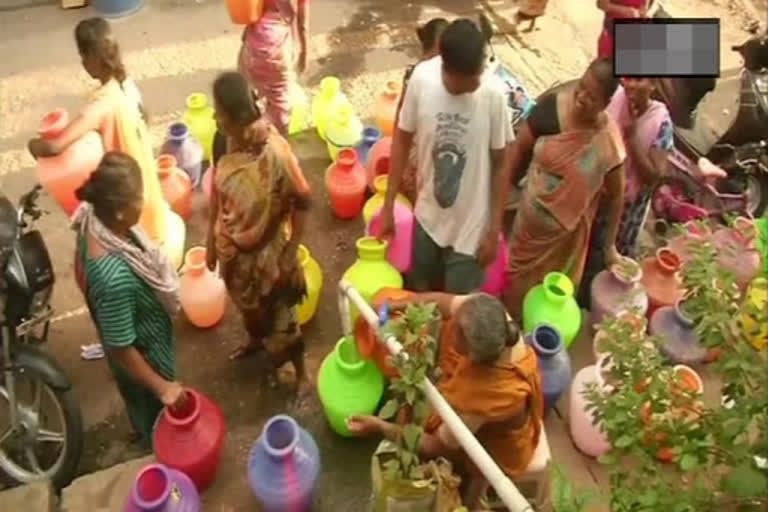Hyderabad: Entire world population is choking because of rapid environmental changes on natural resources. World’s population now is approximately 780 crores. Of this, 220 crore people do not have access to safe drinking water.
For 420 crore people, proper sanitation facilities too are not available. According to a report (2020) of the United Nations World Water Development Council, the developments that are taking place in the environment will have grave repercussions on the availability of quality water.
It has warned that if the countries of the world do not wake up and move forward in the direction given by the UNO for the objectives of integrated development, by 2030, the ambition of providing protecting water, sanitary conditions to all may not be fulfilled.
Problem for all the Countries!
The consumption of water has gone up by six times, during the past one hundred years. On the one hand, the population is increasing explosively. On the other hand, climatic changes have become a curse resulting in super cyclones, floods, droughts, and countries of the world are being subjected to problems. As a result, the pressure on the water has gone up notably.
This is the time that many countries are facing problems of the water crisis. According to the statistics of the World Resources Council (2019), Qatar stands in the first place, among the countries that are facing water crisis, India stands in the 13th place. Experts make it clear that there may be a difference in the degree of water shortage, but in the future, all the countries in the world are sure to face water scarcity.
Therefore, the water shortage has become a common agenda for the countries of the world. Agriculture is making use of 69 % of total water requirements.
Industries, fuel products, fisheries have a bad influence on the water shortage.
Agricultural Development, International Monetary Fund, of UNO lamented through a report that it is already late and everyone in the world has to work concertedly with determination. Water temperature rises due to climatic changes.
As a result, oxygen will be depleted in it and the quality of water gets diminished. Natural water bodies, lakes will lose their ability to clean themselves. During drought and famine, pollutants increase, and water will be contaminated. The ill-effects of all these will ultimately fall on food production. People migrate to other places as a result of climatic, physical and psychological changes, diseases, and economic crisis.
The situation will develop so grave that people cannot get out of difficulties. Not only that, due to the extinction of forests and marshy lands, biodiversity will be greatly affected. The drastic variations in rainfall that are occurring due to climatic changes lead to several kinds of indefiniteness. Depletion of water resources can be seen in tropical areas. India is one among them. There seems to be a threat of certain areas disappearing from the world map.
The effect of climatic changes will be mostly on snow dependent rivers. Countries of the world should move forward on the curative changes, with a twin strategy. As part of this, they should be able to scientifically predict the possible climate conditions.
With this, it will be possible to estimate climatic changes technically and scientifically. With them, we can estimate the intensity of the changes and corrective measures could be taken thereof. The relief is only steps to be taken to reduce Carbon dioxide and greenhouse gases.
This is related to big geographical areas. Use of water resources, their recycling, sewerage management, etc will be in this. The reason for this is that 3 to 7 percent of greenhouse gas production is coming from sewerage.
Treatment for the Environment
Methane gas that comes out of drainage water is a powerful greenhouse gas. It is estimated that worldwide, 80 to 90 percentage of the drainage water is being released into the environment without any treatment. In countries like Jordan, Mexico, Peru, Thailand, Methane is extracted out of organic material by following modern treatment procedures, and required energy is produced.
With this Carbon dioxide and Greenhouse gases will be reduced in thousands of tonnes. Similarly, by following conservative agricultural procedures and wetlands protection, the moisture could be preserved. By recycling and treating partially the effluent water, water waste would be reduced drastically. The government has to render financial assistance to voluntary bodies for the maintenance of water resources and better sanitary services.
Also Read: In India, we're issuing a death sentence to our water resources



